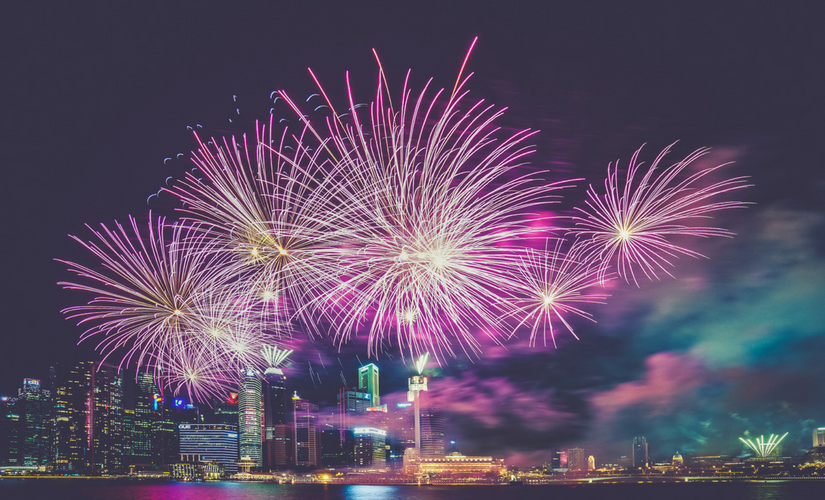Cupid underwear, dark handsome men, blazing torch parades and lentil soup. Who’d have thought that the celebrations of one festivity could have so many different customs? Cultures all around the world mark the occasion of New Year based on traditions, legends, and just plain fun. Can you guess where the tradition of wearing red undies to fend off evil spirits comes from? How about throwing crockery out of the window? Read below to discover some of the world’s most unusual (and exciting!) New Year’s traditions.
Germany
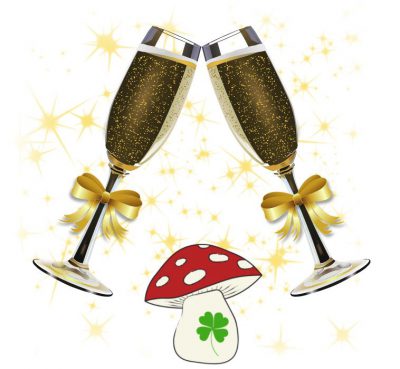
*Silvester*
German New Year’s Eve is called “Silvester”, in honour of Pope Sylvester I, who died on Dec 31st, 335. Legend has it that non-believers choked on fish bones, so superstitious people avoid fish that night.
Carps
Carps are considered a lucky charm in Germany and therefore a typical Silvester dish for Germans. If you keep a carp scale in your wallet it is meant to bring you good luck for the New Year.
“Guten Rutsch”
Just before New Year’s Eve, people start wishing each other a “Guten Rutsch ins Neue Jahr” which means “a good slide into The New Year”. It is believed that the word ‘Rutsch’ comes from the Yiddish word “rosh”. Rosh Hashanah is the name of the Jewish New Year.
Lucky Charms
Germans give each other a “Glückspilz” on New Year’s Eve, which is a little mushroom usually with a cute little face made of marzipan. Ladybugs, four-leaf clovers and little pigs are typical too.
Dinner for One
A classic British sketch from 1963 that has been aired on German TV for many years, and became the most frequently repeated TV programme ever. It is of course in English, but the humour is very easy to understand. It is simply hilarious. A must-watch for anyone who doesn’t know it!
“Prost Neujahr”
A midnight toast is an international tradition, but Germans have a specific expression to say cheers – “Prost Neujahr” or “Prosit”, which comes from Latin and means “may it succeed”.
The Chancellor’s Speech
The chancellor’s New Year’s speech has been broadcasted to the nation since 1986 and has rapidly become a tradition.
England
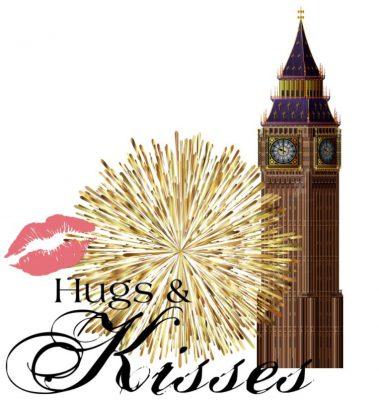
*New Year’s Eve*
Hugs and Kisses
As soon as the clock hits midnight, everyone, wherever they may be, greets their loved ones with hugs & kisses.
Good Luck Traditions
It is believed that the first person who steps foot into the threshold of the house will bring good luck to everyone who lives there for the entire year. The ‘first footer’ should always enter through the front door and exit through the back door. Another duty is to place fuel on the fire, place a loaf of bread on the table & pour water for the head of the household and gift a mistletoe to any other household member.
New Year’s Gifts
Since New Year’s Eve is so soon after Christmas, the tradition has died out a little but it’s still a popular tradition amongst many Brits. Lots of people still like to exchange New Year’s gifts whilst wishing each other a Happy New Year.
Burning a Bush
This is a symbol of burning away all past evils and bringing in new beginnings. A very positive way to start the new year, especially for those who have had a bad year.
New Year’s Day Walks
Some people get up early on the 1st of January, ready to hit the sales and others just want to get their head clear after all the many Christmas and New Year’s celebrations and go for a walk. It is also a time when many people decide to start a diet and cut out alcohol for at least a month.
Dry January
Very typical and probably a good idea – to start the new year sober. Dry January is a tradition not only in England but in many other places around the world. It is a form of detoxing and losing all the pounds that were gained throughout Christmas.
Ireland
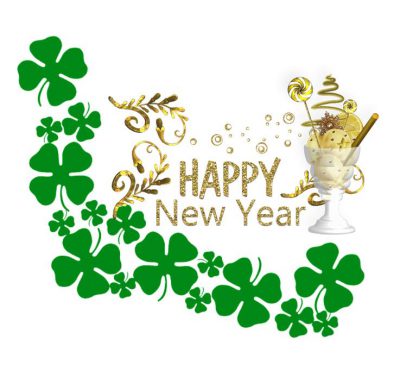
*New Year’s Eve*
Friends and Family
Typically, people spend it with friends & family. Everyone sits together around the dinner table in the evening and waits for the New Year to arrive. The Irish remember and pay homage to those who passed away in the old year and do this by leaving a place for them at their table and keeping doors unlocked.
Pubs and Bars
New Year’s in Ireland isn’t much of a party night. A few pubs, clubs and bars here and there will be open but even those are closed earlier than usual.
New Year Parades
Many parades are found across the cities, towns and villages and they draw huge crowds from both local regions as well as far-off places. The largest one takes place in Dublin which artists from all over the country attend.
New Year’s Dips
Cooling dips are organised in the Irish Sea or the Atlantic Ocean. People have short swims through ice-cold water to feel fresh and new.
Good Luck Traditions
It is believed that cleansing the house will bring good luck in the coming year. Cellars are filled with coal, and unmarried women are meant to put mistletoe under their pillow before they sleep on New Year’s Eve which is supposed to deliver them true love in the coming year.
First Footing
A dark, tall, young, good-looking man is expected to enter the home first on New Year’s Day. It is a symbol of good luck in the New Year. If a woman – blonde or redhead – arrives first, it is meant to be a sign of grief and bad luck.
Scotland
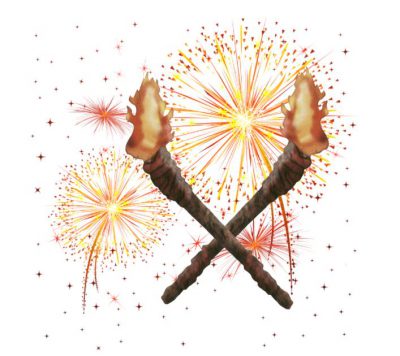
*Hogmanay*
Hogmanay
The Scottish equivalent to New Year’s Eve is called Hogmanay. It is one of the most legendary NYE parties in the world & received elevated importance after the banning of Christmas in the 16th and 17th centuries. It’s a 3-5 day celebration.
Redding the House
A major clean-up of the house is a tradition in many countries and one of many Hogmanay traditions. Sweeping out the fireplace is the most important part of it.
First Footing
This is the most deeply embedded tradition of Hogmanay. When the clock strikes midnight, people across Scotland visit each other, bearing traditional symbolic gifts like a black bun (fruit cake), shortbread, coal (for warmth), salt (for health) & the visitor is offered a small whisky – “a wee dram”. Like in other countries, the first person to enter the house could bring you luck. The luckiest was a tall, dark, handsome man & the unluckiest was a red or blonde-haired woman.
Fire Festivals
The fire festival during Hogmanay is believed to have Pagan or Viking origins – fire is meant to purify and drive away evil spirits. These fire festivals were first celebrated in Stonehaven, Biggar & Comrie and are now also celebrated in Edinburgh where thousands of souls march the city with blazing torches (which is called Torchlight Procession). Men hold blazing balls of fire and continuously swing these over their heads. This is believed to bring purification & sunshine.
Auld Lang Syne
Robert Burns’ version of Auld Lang Syne is sung all over the world during Hogmanay. People join hands and sing it together. How this has become THE New Year’s song is something of a mystery.
The Saining of the Horse
Blessing the house and livestock with holy water from a local stream is a very old tradition and has nearly died out, but in recent years it has made a comeback. The woman of the house goes from room to room with a smouldering juniper branch to fill the house with mean smoke
Spain
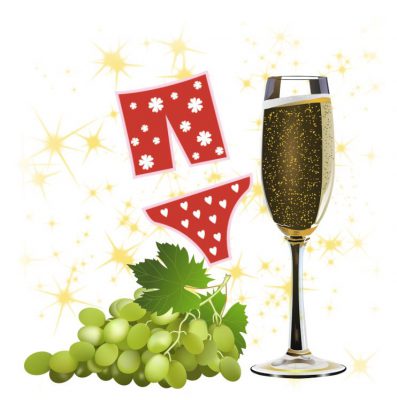
*Nochevieja*
Lucky Grapes
In Spain, they call it “12 Uvas”. It’s believed that if you manage to eat all 12 grapes, one by one, during every stroke of the clock as it strikes 12 o clock, you are in for a year of prosperity & good luck!
Cupid’s Red Underwear
Wearing red underwear on New Year’s Eve is meant to bring you love and good luck. However, this only works if the red underwear you are wearing were a gift. (knickers & boxers)
Lentil Soup for Lunch
Lentil soup with black-eyed peas and ham for lunch is a Spanish tradition. They believe that each of the small round lentils represents a coin so eating a soup of “coins” is believed to bring them wealth in the New Year.
Gold and a Glass of Cava
Spaniards drop a gold object into their glasses of Cava before midnight. It is meant to bring good fortune in the New Year.
Starting the Year on the Right Foot
In Spain, many people believe that the New Year should be started on the right foot – literally. If you spend New Year’s Eve elsewhere, you should also enter your house with the right foot first. Others believe it is when you leave your house on New Year’s Day, that you should leave with the right foot first.
Cookies and a Coin
January the 17th is the day that Spaniards celebrate the day of San Antón who was a patron saint of animals, and it is believed that he cured animals on that specific day. This is celebrated by making “panecillos” which are small round cookies marked with a cross. If you save one of these cookies with a coin – you are in for financial luck.
Italy
*Anno Nuovo*
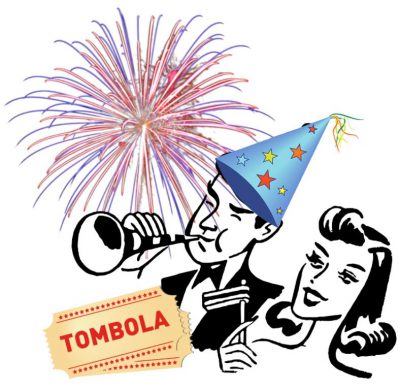
Red Underwear
Italians have many similar traditions to the Spaniards – one of them being red underwear, which is worn on NYE and will help to fend off evil spirits & negativity and bring happiness in the coming year.
Tombola
Playing tombola (like bingo) with family and friends is not only popular throughout the Christmas period, but also a long-lived tradition on New Year’s Eve.
Party Until Sunrise
Nothing is done by halves in Italy so be prepared to keep the party going until the early hours of the morning. This is done to watch the New Year arrive.
Throwing Things
In some Southern parts of the country, it is tradition to throw your possessions out the window. Throwing crockery out of the window to show that you are ready for the New Year is very popular. It is also believed to scare away evil spirits.
Superstition
Legend has it that the first person you meet after midnight on New Year’s will dictate how the rest of your year will pan out. If it happens to be an older person of the opposite sex, then you are in luck because it means that you will have a great year. If it is a baby or someone of the same sex, then your year has not got off to the best start.
France
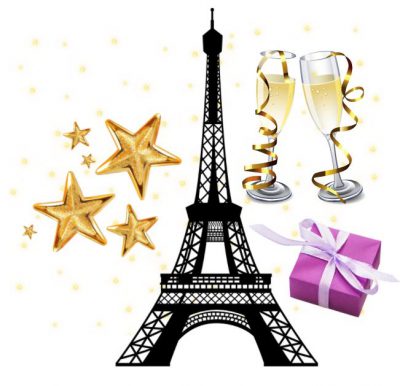
*La Saint-Sylvestre*
Cards
French people don’t send Christmas cards but they send New Year’s cards instead. ‘La bonne année’ is wished throughout the whole month of January.
Etrennes
Gifting money to people who serve you regularly like the concierge of your building or your local postman, gardener or family doctor etc.
New Year’s Eve Dinner
‘La Rèveillon’ has the same name as Christmas Eve dinner. The celebration on the 31st of December is called ‘la Saint- Sylvestre’ or ‘le réveillon de la Saint-Sylvestre’ since the last day of the year happens to be the saint’s feast day.
Public Transport
On the night of the 31st of December, public transport in the larger cities of France is free that night to discourage drivers from drunk driving.
Street Parades
On New Year’s Day – ‘Le jour de l’an’ in French – Parades fill the streets in most parts of France which can also be watched on TV if you can’t stand to be in the cold.
Party at Home
‘Des soirées déguisées’ (costume parties) are popular this time of year. Spending NYE at home with friends and family, celebrating, dancing and of course eating is what most French people enjoy doing that evening.
Making Noise
It is expected and almost demanded that you must make as much noise as possible when the clock strikes midnight. Car horns, people shouting ‘bonne année’, blasting songs on full volume, firecrackers – take your pick – but it has to be LOUD.
Partying in the Street
If you don’t want to stay home or aren’t invited to any house party – spend it on the street. Paris has 3 very popular spots for that: the Eiffel Tower, on the Avenue des Champs-Élysées, and at the Sacré-Coeur in Montmartre. Fireworks are unfortunately no longer allowed to be set off in the capital.
Sweden
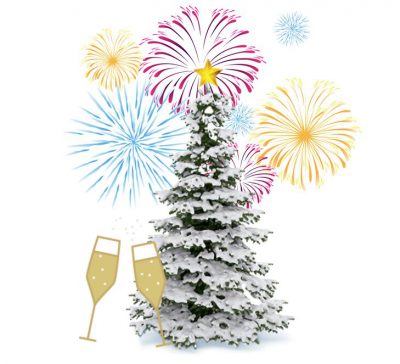
*nyår*
Spent With Friends
After all the family Christmas gatherings & festivities, NYE is spent with friends. It is very cold in Sweden at that time of the year so people tend to come outside completely covered up from head to toe.
12 Grapes
The same tradition as in Spain. 12 grapes are eaten during every Stroke of the clock at midnight, which is believed to bring you luck in the New Year.
New Year’s Verse
There is a ritual of chiming bells and speaking out a New Year’s Verse to the nation on NYE. This happens in the Skansen open-air museum and is broadcasted live on TV to the entire nation.
Promises
When the clock hits midnight, it is tradition to make a promise, to yourself or out loud, to be a better human in the coming year and to get rid of bad habits. It is a form of New Year’s Resolutions.
Russia
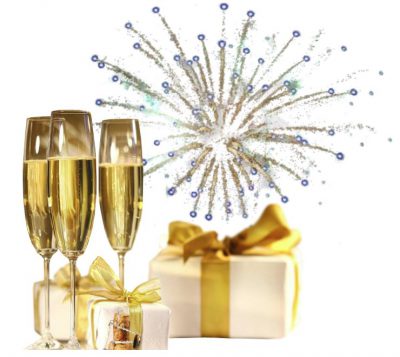
*Новый Год*
New Year
It takes place on the 31st of January like in most other countries. The Russian Santa “Ded Moroz” and his female companion “Sengurochka” come along to hand out gifts. What we consider a Christmas tree, Russians consider the New Year’s Tree which usually has a red star at the top.
Old New Year
Old New Year or Orthodox New Year is on the 14th of January. This was the only big Winter holiday that Russians had left after all religious holidays were banned in the Soviet Union, so they celebrated the Old New Year to compensate for the loss of Christmas.
Celebrations
Many Russians attend concerts and fireworks displays. Most families have a late dinner and watch the presidential speech on TV at 11:55 in each of Russia’s time zones. He reflects on achievements of the past year and at midnight, the Kremlin Spasskaya Clock Tower goes off and the Russian national anthem begins.
Food
A ‘Zakuska table’ is set up for the guests which is covered with snacks that go well with drinks like caviar, pickles, bread etc.
Australia
*New Year’s*
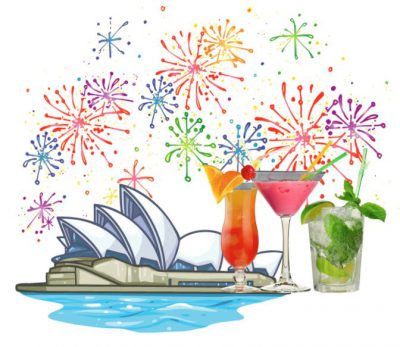
Celebrations
New Year’s celebrations go on for 6 days in Australia. The most famous one takes place in Sydney Harbor where the bridge is lit up by more than 80,000 fireworks, accompanied by music.
Beach Parties
Since it is Summer in Australia at that time of the year, many parties take place across the beaches. Bonfires and camping is a very typical thing to do.
Chinese-Australian Rituals
Another major attraction is the traditional practice of ‘sacrificing to ancestors’ performances, in the Chinese area of Melbourne.
China
*Xin Nian*
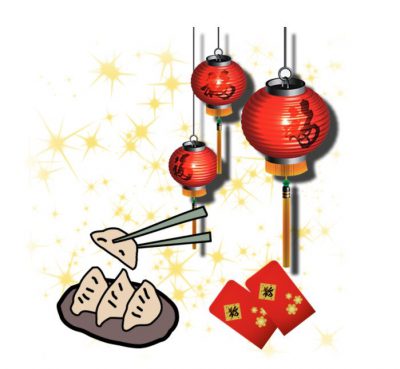
Dinner
The most important dinner of the year for the Chinese is New Year’s Eve dinner, and it’s preferred at home. This is a family reunion dinner. Typically, the Chinese have fish for dinner or dumplings. These 2 dishes signify prosperity.
Shou Sui
After the New Year’s Eve dinner, some family members normally stay awake throughout the night. Legend has it that there was an evil beast called ‘Year’ that came out to harm people and animals. People found out that it is afraid of the colour red, fire & loud sounds.
Red Packets
A red envelope with money inside is usually given by adults, especially married couples & the elderly, to young people. This money is believed to suppress the evil from children and keep them healthy.
Markets
Temporary markets that sell New Year’s goods such as clothing, decorations, fireworks, food and small artwork are set up over the course of the New Year’s celebrations and are adorned with many lanterns.
Small Year
A small year is on the 23rd or 24th of the last month of the year. It is believed that this is the day when the ‘food god’ leaves the family to go to heaven and reports the activity of the family to the Emperor of heaven. People then take down the paint of the food god and in the New Year they buy new paint from the food god and put it in the kitchen.
Cleaning and Decorating
The entire house gets a good clean to welcome the New Year and then it gets fully decorated with red items. The most popular pieces of decoration are an upside down fu, dui lain, lanterns, papercutting, year paint & door gods.
Japan
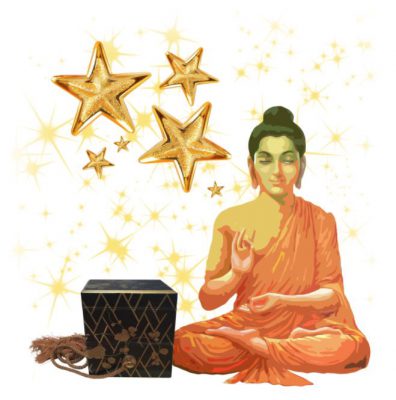
*Shogatsu*
Hatsumode
This is the first visit to a Shinto shrine of the New Year. Some people also go to Buddhist temples and call it ‘hatsumode’. This normally happens during ‘sanganichi’ or the first 3 days of the Year. During Hatsumode people throw ‘Taisen’ or money donations into a box called ‘saisen bako’, and ring the bell in front whilst they make a wish.
Nengajo
Simple postcards labelled with two kanji characters reading ‘nanga’ (new year) with red ink. These postcards get sent out in the old year so that they arrive in the New Year.
New Year’s Eve– Omisoka
The entire house is cleaned up to start the new year with a fresh mind. They call this ‘osojo’. The Japanese use the last days of the old year to make preparations for ‘osechi ryori’ which consists of eating traditional Japanese foods which are served in beautiful boxes called ‘jubako’, and are placed in the middle of the table at dinner.
Joya No Kane
Bells are monotonously ringing for about 1-2 hours. This is a Buddhist tradition and they call it ‘Joya no Kane’ which is one of the most important rituals of the year for Buddhist temples in Japan. The bell will strike exactly 108 times because it is believed that human beings are plagued by 108 types of earthly desires and feelings called ‘Bonnou’, which is exemplified by anger, jealousy & adherence. Every sound of the bell is believed to remove one of these troubling ‘Bonnou’ from you.
Otoshidama
This is a Japanese tradition all kids look forward to – They will receive small envelopes with cash in them from their parents, grandparents or close relatives. The amount they receive increases as the kids grow up.
America
*New Year’s*
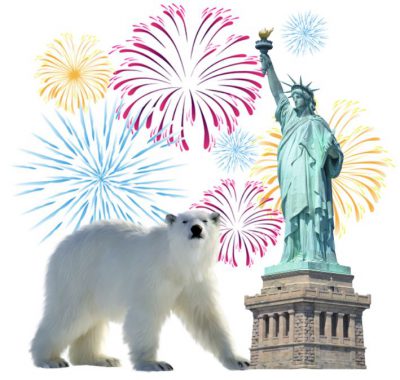
American Feast
It is believed that black-eyed beans are very lucky. It is typical to prepare different cuisines to gather for family feasts. Hoppin’ John is one of them. It is a special soul food with rice and is eaten with black-eyed beans.
South American Traditions
The new year is called ‘Ano Viego’ and people create dummies stuffed with waste and firecrackers and place them outside their homes. At midnight they are set on fire which depicts welcoming the new Year and leaving the old year in the past along with evil.
USA Celebrations
Streets are crowded with people who welcome the New Year with joy. Fireworks, parties, musicals, etc. New York is the main attraction during NYE in the USA and Times Square hosts several events which are hosted by Dick Clark on TV. American New Year customs are generally very colourful.
Colourful Underwear
In Mexico, Brazil and some Latin American countries, legend says that the colour of your underwear will influence what kind of year you’ll have. Yellow: prosperity & success. Red: love & romance. White: peace & harmony. Green: health & well-being.
Canadian Traditions
Clapping and roaring at midnight is supposed to sway away all evil and negative energies. Some people go for a polar bear swim on New Year’s. Kissing is also a tradition – it shows love and wishes to someone and strengthens pleasant ties with your loved ones.

